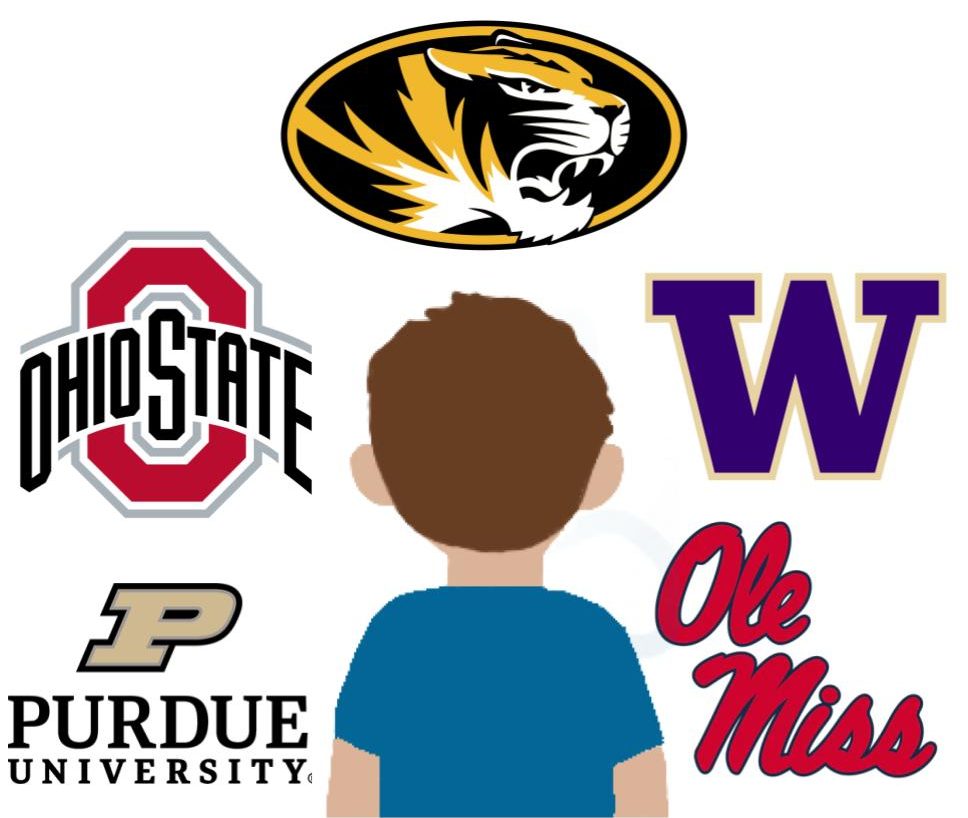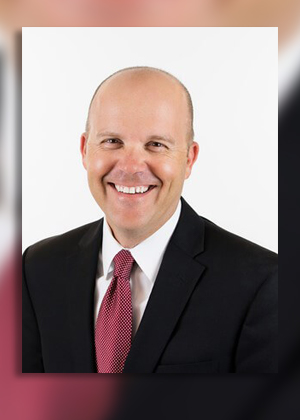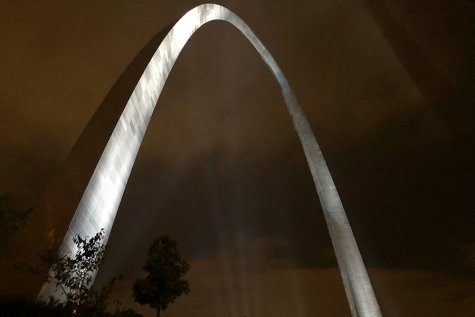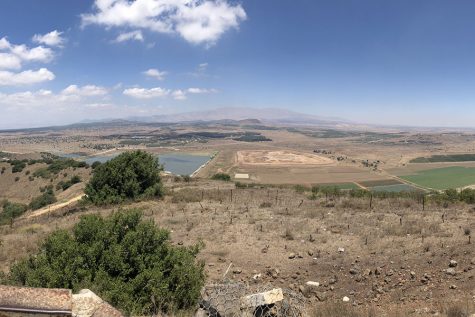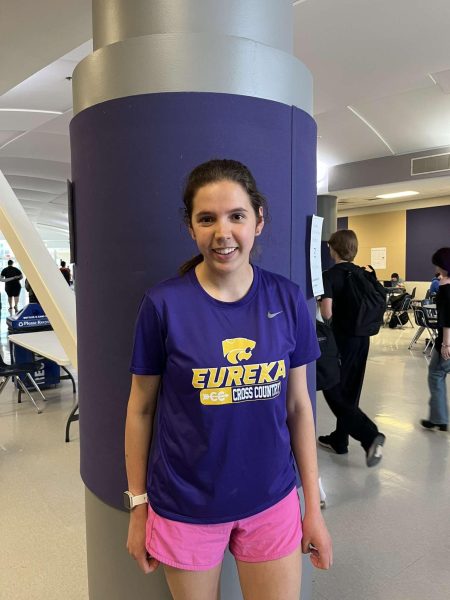Senate candidate, changes to The Affordable Care Act and the 2017 Nobel Peace Prize winner
The media and volunteers surrounding them, Nick Cunningham and Alec Holloway (12) listen to Governor Eric Greitens, talk about the cleanup of the second historic flood in Eureka, May 2.
*CORRECTION: The Hub reported that Courtland Sykes is running for Missouri State Senate when he is running for the United States Senate.
Local
Know: Courtland Sykes is running as a Republican for the United States Senate using political tactics similar to President Donald Trump’s.
Inform: Sykes first announced his plan to run for Senate by publishing his campaign video on YouTube, Sept. 26. In the video Skye promises to support Trump’s pro-America agenda and marks himself as a political outsider. Similar to Trump, he relies heavily on social media to gain audience for his campaign for 2018. The Harvard graduate and Arkansas native mentions the issues America is facing: debt, war, a poor education system, crime, taxes, immigration and nuclear terror saying that he is working to defend Trump in Washington D.C. against modern feminism and liberals.
Care: A Missouri Senator represents the state of Missouri and is the voice for the people during legislation. The EHS community plays a major role in who gets elected as the Senator. After the damage was done from the December flood of 2016, Missouri Senator Roy Blunt visited areas impacted by flooding and talked to local officials and residents. By attending celebrations or going to visit in times of disaster, Senators find ways to get involved with communities and residents, so that they’re able to represent the people in that area. Missouri senators are the people creating the laws that determine how schools are run, high tax rates are, guns should be regulated, providing resources during times of crisis and benefits and regulations of healthcare. They determine what the communities of EHS and the rest of Missouri will look like. When Obamacare was on its way to be repealed, the Senate made the decision to reject the repeal from Republican lawmakers. With a 50-50 tie after two Republican Senators voted no to block funding for Planned Parenthood, Vice President Mike Pence broke the tie with his vote, July 25. This decision would cost three-quarters of U.S. citizens (32 million) to live without insurance unless provided by employers or government by 2026. Healthcare is one example of how a state representative impacts an everyday person.
National
Know: The Trump administration altered the Affordable Care Act by allowing employers to not have to provide insurance for women’s birth control if employers have a religious exemption, Oct. 6.
Inform: When Trump ran for office, part of his campaign was to replace Obamacare so that it was more affordable for people. As a result, he gained support from Christian activists and congressional Republicans but not from reproductive rights advocates and Democrats. Although the Trump administration campaigned against Obamacare, they didn’t end up getting enough votes to repeal it. So for now, the administration is changing the act to address religious and moral concerns of employers. According to The U.S. Department of Health and Human Services, exceptions “on the basis of moral conviction” for both nonprofit and for-profit companies are included as a part of Trump’s revisions to the Affordable Care Act.
Care: Employers across the country will now have the option to not offer insurance for birth control and contraceptives to their workers. Missouri’s new bill Senate Bill 5 imposes tighter restrictions on abortion providers but doesn’t ban women on birth control from working. While the controversial bill was thought to mention employers having the right to make reproductive health care decisions, it mainly focused on abortion providers and alternative agencies. The Trump administration and Missouri Senate Bill 5 pose two different perspectives on reproductive health care controlled by the workplace. While they have their differences, they both have a central theme of how much impact employers should have on birth control insurance. Birth control isn’t only used to prevent pregnancies but also for irregular menstrual cycles and acne. Taking away access to birth control while holding a job is detrimental for female workers. A survey conducted by the Guttmacher Institute found that 64 percent of patients at a family planning clinic said birth control helped them extend their education, 71 percent found it supported them financially and 77 percent said it helped them take care of themselves and families. The pill not only supports women who are sexually active but also those who take it for balancing menstrual cycles and hormones. Another study from the Guttmacher Institute found that 14 percent don’t take it as a contraceptive, and 58 percent take it for reasons including contraception. Out of all women of childbearing age, one in ten suffer from a polycystic ovary system, causing them to have irregular periods, acne, facial hair growth and an increased risk of endometrial cancer.
International
Know: The International Campaign to Abolish Nuclear Weapons (ICAN) won the Nobel Peace Prize in Oslo, Norway, Oct. 6.
Inform: Atomic bombs have caused many instant deaths and injuries as well as long-lasting effects that are still being dealt with to this day. During World War II, two atomic bombs were dropped in Hiroshima and Nagasaki Japan, leading to 140,000 deaths. Intellectual disabilities, impaired growth and cancer have dramatically increased due to exposure to radiation from the atomic bombs. North Korea has successfully tested a hydrogen bomb that can eventually be used as a weapon of mass destruction. With this threat in mind, ICAN worked to prevent the production and use of nuclear weapons by establishing the first legally-binding international treaty to ban nuclear weapons, the Treaty on the Prohibition of Nuclear Weapons, July 7. The Nobel judges have continued to praise efforts to outlaw the world of nuclear weapons with one of the biggest praises being the Nobel Peace Prize. Many individuals and groups have received the award for their anti-war efforts since the first anti-nuclear campaigner to win: chemist Linus Pauling. The International Red Cross’ research on the effect of a nuclear war (about 100 Hiroshima-sized bombs) show that five million tonnes of soot from the fires could cause the global temperature to fall by an average of 34.34 degrees fahrenheit. With the temperature decreasing dramatically, the dramatic difference in climate would decrease food production, eventually leading to an estimated billion people around the world facing starvation.
Care: As technology advances and weapons of mass destruction grow in population, the threat of the hydrogen bomb from North Korea still stands. This bomb could potentially hit somewhere in the United States with just one click of a button. Whether it is close to the EHS community or not, America will be greatly impacted just like how Japan was after the two atomic bombs in 1945. Although the EHS community has dealt with two historic floods within the past two years, no one truly knows what would happen if the bomb were to hit the community. Eureka is no stranger to cleaning up after a disaster. The tsunami in Fukushima, Japan killed nearly 19,000 people and destroyed a power plant’s cooling system, causing the fuel inside the three reactors to melt, 11 March 2011. The cleanup of the power plant is especially difficult because no one really knows where the fuel went. It is estimated that the cleanup will take anywhere from 30 to 40 years. The low doses of radiation from the plant fuel cause extreme health effects for the residents and engineers dealing with the impact firsthand. While there are disagreements and tensions between nations, the residents in those nations will be dealing with the impacts of nuclear warfare on both sides. Whether compromises can be made or not, the lives and health of citizens are at risk.
Your donation will support the student journalists of Eureka High School - MO. Your contribution will allow us to purchase equipment and cover our annual website hosting costs.

Myers serves as the editor-in-chief of two staffs: EHS-hub Broadcast News and Eurekana yearbook. She has been on staff since first semester her sophomore...
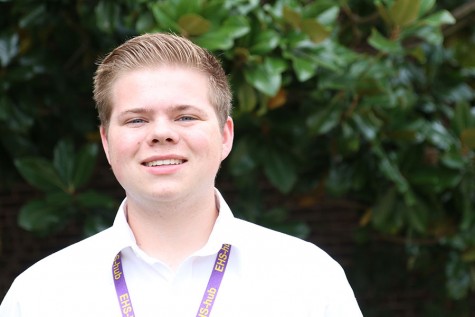
This is Ryan's second year on staff. You can follow him on twitter @rbircherEHS_hub. Ryan has worked at Walmart for 2 years. His favorite food is chicken...




